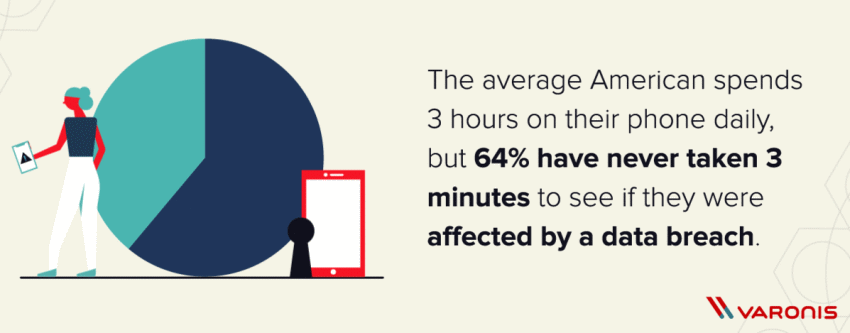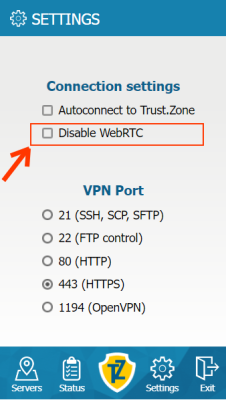Web Real-Time Communication (WebRTC) is an open-source technology in today's digital landscape. It allows real-time data exchanges and user interactions via web browsers and devices. With this feature in place, you can easily and quickly communicate with other users via text, audio, or video without needing an intermediate server. Amazing, isn't it?
But here's the problem: WebRTC can expose your IP address, not to mention your network interface, operating system, and web browser. This leak happens when the Session Traversal Utilities for NAT (STUN) looks for the best path for data transmission. Even if you're using a VPN, WebRTC leaks can still occur. Scary, right?
Beware: WebRTC leaks can be a huge concern for your online privacy and security.
Let's cover the dangers of WebRTC leaks.
Did you know that the United States had 1802 cases of compromised data back in 2023? Over 422 million individuals were affected by data compromises, such as data breaches, leakage, and exposure.
Unfortunately, nearly 65% of Americans have never checked to see if they are subject to data breaches. Even if they do, more than 55% don't know what measures to take to address these.

Enter the virtual private network. VPN is best for IP address concealment, data encryption, and online anonymity. It hides your IP address to protect your privacy, prevent tracking, avoid censorship, escape marketing, and more.
But what if WebRTC leaks occur, exposing your IP address even if you're using a VPN Service? That can put your online privacy and security at risk! Here's why webRTC leaks can be dangerous for you or your business:
WebRTC leaks can inadvertently reveal your IP address when browsing via the web. When communicating online, STUN seeks the best data transmission path. As a result, it could leak local and public IP addresses, including the network interface, OS, and browser information.
The good news? VPN can conceal your IP address. However, the problem is that WebRTC leaks can still occur and expose your IP address even if you're using a VPN. Such exposure can make your online browsing vulnerable to cyberattacks. Learn more about these in the next few sections.
WebRTC leaks don't only cause an IP address exposure alone. They can also leak your device data and information when browsing online. The worst thing is that they can reveal your user identity even if you're using a VPN.
As you are aware, identity theft is one of the biggest concerns in cybersecurity. Due to WebRTC leaks, online crooks can easily and quickly steal and use your personal information to their advantage. They can go as far as committing identity theft.
Hiring VPN services guarantees online protection and user anonymity. However, WebRTC leaks can expose your device and web information. They can allow the government, marketing agencies, and other third-party users to track your online activities.
Of course, you don't want others to monitor your online activities and access your personal data. They can collect sensitive information about you, your interests, and your habits without consent. The worst thing that can happen is if they will use your data and information for fraudulent activities.
Cybersecurity has become a growing concern in today's digital world. According to Ponemon Institute's State of Cybersecurity Report, small and mid-sized enterprises (SMEs) reported recent cyberattack experiences:
WebRTC leaks can make your online account, information, and activities vulnerable to cyberattacks. They allow cyber-criminals to have unauthorized access, steal data and information, as well as disrupt web applications, networks, and systems.
Below are cyberattacks caused by WebRTC leaks you should be wary of:
Will Ward, Co-Founder at Industry Arabic, cites the dangers of WebRTC leaks. "These can expose IP addresses, user identities, and sensitive information, putting clients and businesses at risk. So, when offering translation services online, we aim to stay on top of online security and data privacy."
But how do you go about ensuring online privacy and security? Specifically, how do you address WebRTC leaks? Ward recommends the following best practices:
WebRTC leaks can be a huge concern for your online privacy and security. They can expose your IP address, reveal your identity, and track your online activities. They can make your data and information vulnerable to cyberattacks.
As such, consider the best practices recommended above for addressing WebRTC leaks. To sum up, examine for potential leaks regularly. If you find one, turn off your webRTC in your browser settings or use add-ons and extensions. Lastly, hire a VPN service with webRTC leak protection.
Looking to stop the flow of WebRTC leaks when surfing online? Trust Zone offers robust VPN services with webRTC leak protection, along with Internet Kill Switch and DNS Leak Protection.